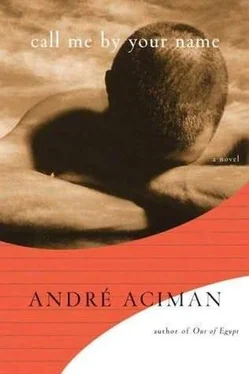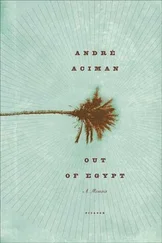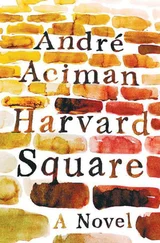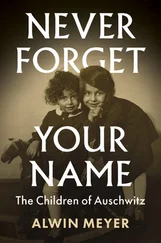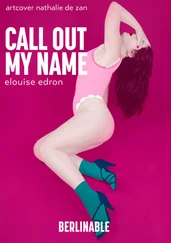André Aciman - Call Me by Your Name
Здесь есть возможность читать онлайн «André Aciman - Call Me by Your Name» весь текст электронной книги совершенно бесплатно (целиком полную версию без сокращений). В некоторых случаях можно слушать аудио, скачать через торрент в формате fb2 и присутствует краткое содержание. Год выпуска: 2007, Издательство: Farrar, Straus and Giroux, Жанр: Современная проза, на английском языке. Описание произведения, (предисловие) а так же отзывы посетителей доступны на портале библиотеки ЛибКат.
- Название:Call Me by Your Name
- Автор:
- Издательство:Farrar, Straus and Giroux
- Жанр:
- Год:2007
- ISBN:нет данных
- Рейтинг книги:5 / 5. Голосов: 6
-
Избранное:Добавить в избранное
- Отзывы:
-
Ваша оценка:
- 100
- 1
- 2
- 3
- 4
- 5
Call Me by Your Name: краткое содержание, описание и аннотация
Предлагаем к чтению аннотацию, описание, краткое содержание или предисловие (зависит от того, что написал сам автор книги «Call Me by Your Name»). Если вы не нашли необходимую информацию о книге — напишите в комментариях, мы постараемся отыскать её.
is clear-eyed, bare-knuckled, and ultimately unforgettable.
Call Me by Your Name — читать онлайн бесплатно полную книгу (весь текст) целиком
Ниже представлен текст книги, разбитый по страницам. Система сохранения места последней прочитанной страницы, позволяет с удобством читать онлайн бесплатно книгу «Call Me by Your Name», без необходимости каждый раз заново искать на чём Вы остановились. Поставьте закладку, и сможете в любой момент перейти на страницу, на которой закончили чтение.
Интервал:
Закладка:
“Better?” he asked deferentially.
“No. But at least we know the door is open.”
Oliver looked at me, meaning, Did you like it? I shrugged my shoulders, like someone reserving judgment for later. But I was not being sincere; I liked it a lot.
Perhaps what I liked far more was the evening. Everything about it thrilled me. Every glance that crossed my own came like a compliment, or like an asking and a promise that simply lingered in midair between me and the world around me. I was electrified — by the chaffing, the irony, the glances, the smiles that seemed pleased I existed, by the buoyant air in the shop that graced everything from the glass door to the petits fours, to the golden ochre spell of plastic glasses filled with scotch whiskey, to Mr. Venga’s rolled-up sleeves, to the poet himself, down to the spiral staircase where we had congregated with the babe sisters — all seemed to glow with a luster at once spellbound and aroused.
I envied these lives and thought back to the thoroughly delibidinized lives of my parents with their stultifying lunches and dinner drudges, our dollhouse lives in our dollhouse home, and of my senior year looming ahead. Everything appeared like child’s play compared to this. Why go away to America in a year when I could just as easily spend the rest of my four years away coming to readings like this and sit and talk as some were already doing right now? There was more to learn in this tiny crammed bookstore than in any of the mighty institutions across the Atlantic.
An older man with a scraggly large beard and Falstaff’s paunch brought me a glass of scotch.
“Ecco.”
“For me?”
“Of course for you. Did you like the poems?”
“Very much,” I said, trying to look ironic and insincere, I don’t know why.
“I’m his godfather and I respect your opinion,” he said, as though he’d seen through my first bluff and gone no further. “But I respect your youth more.”
“In a few years I promise you there won’t be much youth left,” I said, trying to assume the resigned irony of men who’ve been around and know themselves.
“Yes, but by then I won’t be around to notice.”
Was he hitting on me?
“So take it,” he said, offering me the plastic cup. I hesitated before accepting. It was the same brand of scotch my father drank at home.
Lucia, who had caught the exchange, said: “ Tanto , one scotch more or less won’t make you any less dissolute than you already are.”
“I wish I were dissolute,” I said, turning to her and ignoring Falstaff.
“Why, what’s missing in your life?”
“What’s missing in my life?” I was going to say Everything , but corrected myself. “Friends — the way everyone seems to be fast friends in this place — I wish I had friends like yours, like you.”
“There’ll be plenty of time for these friendships. Would friends save you from being dissoluto ?” The word kept coming back like an accusation of a deep and ugly fault in my character.
“I wish I had one friend I wasn’t destined to lose.”
She looked at me with a pensive smile.
“You’re speaking volumes, my friend, and tonight we’re doing short poems only.”
She kept looking at me. “I feel for you.” She brought her palm in a sad and lingering caress to my face, as if I had suddenly become her child.
I loved that too.
“You’re too young to know what I’m saying — but one day soon, I hope we’ll speak again, and then we’ll see if I’m big enough to take back the word I used tonight. Scherzavo , I was only joking.” A kiss to my cheek.
What a world this was. She was more than twice my age but I could have made love to her this minute and wept with her.
“Are we toasting or what?” shouted someone in another corner of the shop.
There was a mêlée of sounds.
And then it came. A hand on my shoulder. It was Amanda’s. And another on my waist. Oh, I knew that other hand so well. May it never let go of me tonight. I worship every finger on that hand, every nail you bite on every one of your fingers, my dear, dear Oliver — don’t let go of me yet, for I need that hand there. A shudder ran down my spine.
“And I’m Ada,” someone said almost by way of apology, as though aware she’d taken far too long to work her way to our end of the store and was now making it up to us by letting everyone in our corner know that she was the Ada everyone had surely been speaking about. Something raucous and rakish in her voice, or in the way she took her time saying Ada, or in the way she seemed to make light of everything — book parties, introductions, even friendship — suddenly told me that, without a doubt, this evening I’d stepped into a spellbound world indeed.
I’d never traveled in this world. But I loved this world. And I would love it even more once I learned how to speak its language — for it was my language, a form of address where our deepest longings are smuggled in banter, not because it is safer to put a smile on what we fear may shock, but because the inflections of desire, of all desire in this new world I’d stepped into, could only be conveyed in play.
Everyone was available, lived availably —like the city — and assumed everyone else wished to be so as well. I longed to be like them.
The bookstore owner chimed a bell by the cash register and everyone was quiet.
The poet spoke. “I was not going to read this poem tonight, but because someone ”—here, he altered his voice—“ someone mentioned it, I could not resist. It’s entitled ‘The San Clemente Syndrome.’ It is, I must admit, i.e., if a versifier is allowed to say this about his own work, my favorite.” (I later found out that he never referred to himself as a poet or his work as poetry.) “Because it was the most difficult, because it made me terribly, terribly homesick, because it saved me in Thailand, because it explained my entire life to me. I counted my days, my nights, with San Clemente in mind. The idea of coming back to Rome without finishing this long poem scared me more than being stranded at Bangkok’s airport for another week. And yet, it was in Rome, where we live not two hundred meters away from the Basilica of San Clemente, that I put the finishing touches to a poem which, ironically enough, I had started eons ago in Bangkok precisely because Rome felt galaxies away.”
As he read the long poem, I began thinking that, unlike him, I had always found a way to avoid counting the days. We were leaving in three days — and then whatever I had with Oliver was destined to go up in thin air. We had talked about meeting in the States, and we had talked of writing and speaking by phone — but the whole thing had a mysteriously surreal quality kept intentionally opaque by both of us — not because we wanted to allow events to catch us unprepared so that we might blame circumstances and not ourselves, but because by not planning to keep things alive, we were avoiding the prospect that they might ever die. We had come to Rome in the same spirit of avoidance: Rome was a final bash before school and travel took us away, just a way of putting things off and extending the party long past closing time. Perhaps, without thinking, we had taken more than a brief vacation; we were eloping together with return-trip tickets to separate destinations.
Perhaps it was his gift to me.
Perhaps it was my father’s gift to the two of us.
Would I be able to live without his hand on my tummy or around my hips? Without kissing and licking a wound on his hip that would take weeks to heal, but away from me now? Whom else would I ever be able to call by my name?
There would be others, of course, and others after others, but calling them by my name in a moment of passion would feel like a derived thrill, an affectation.
Читать дальшеИнтервал:
Закладка:
Похожие книги на «Call Me by Your Name»
Представляем Вашему вниманию похожие книги на «Call Me by Your Name» списком для выбора. Мы отобрали схожую по названию и смыслу литературу в надежде предоставить читателям больше вариантов отыскать новые, интересные, ещё непрочитанные произведения.
Обсуждение, отзывы о книге «Call Me by Your Name» и просто собственные мнения читателей. Оставьте ваши комментарии, напишите, что Вы думаете о произведении, его смысле или главных героях. Укажите что конкретно понравилось, а что нет, и почему Вы так считаете.
